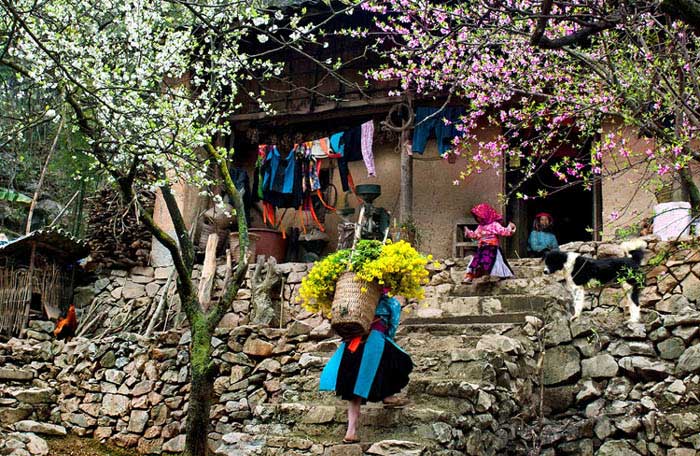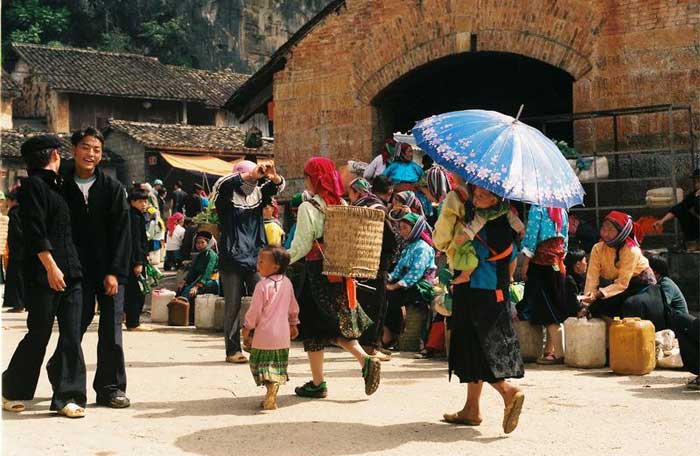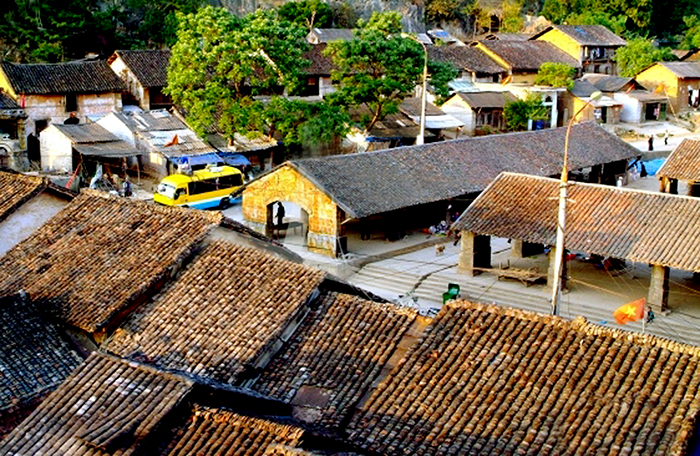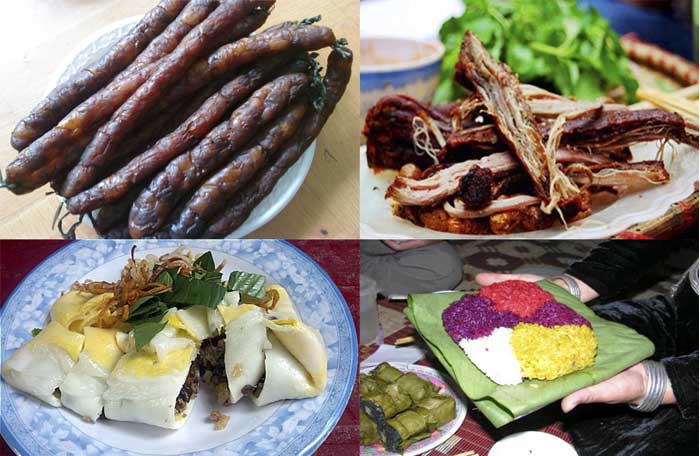
The old Dong Van district, a jewel in the middle of the karst plateaus
- on Jan 14, 2020 By: BN
In the middle of the breathtaking landscapes of the high karst plateaus in the extreme North, hides a tiny kingdom of minority ethnic groups where time seems to stand still, the old Dong Van district.
Characterized by its specific geography, the Dong Van highlands are foggy all year round. In winter, the temperature can drop to 1ºC and reach a maximum of 24ºC in summer. Perched at an altitude of 1,600m, Dong Van small market town is surrounded by magnificent karst mountains. Immerse yourself in the mystical setting of your neighbourhood and the colourful atmosphere of its old market after a long tortuous journey from Ha Giang city, through which you will feel completely satisfied.

The old Dong Van district, at its birth in the early 20th century, had only a few Mong, Tay and Chinese families. Until now, the place has been populated by around forty houses, built between 1810 and 1820, forming a unique architectural framework with the visible presence of the Chinese style. These houses with a tubular tiled roof have in common two floors at most with a lantern hung on the gables.

At the foot of the limestone mountains, this district is covered with a lively atmosphere which, at every moment of the day, is coloured with a particular charm. Early in the morning, it is the prolific marriage between the golden yellow of the sun and the gray which reigns on the roofs of the old buildings. Without knowing it, the quiet town wakes up with light, animation and also with the bright colours that shine on the clothes of the Mong, Hoa, Ray, Tay and Nung ethnic groups. At sunset, the calm inherent in the mountains settles in again and at night, illuminated by red lanterns, the place is plunged in murmurs here and there of the "Khen" flutes of men waiting for their lovers.
The place has undergone significant improvements during the colonial era with the intervention of the French. The result is remarkable installations and renovations in terms of architectural style, of which the Dong Van market, built entirely in stone, remains well preserved to date. From then on, laterite houses with stone columns rub shoulders in perfect harmony with traditional clay mansions.

The market, which is limited to three buildings forming a “u”, is not only a high place for the exchanges of ethnic minorities but also for traditional activities. Colourful, the market is in full swing especially during its weekly session on Sunday. From Saturday evening, couples in love with Mong, Dao, Giay... go there to drink together and indulge in traditional songs and dances or have fun around the fire in the harsh cold of winter days.
Dong Van's "old night district" is held every month between the 14th and 16th lunar days where the atmosphere is enlivened by many varied activities with the presentation of handicrafts, local specialities and folklore shows. It is also an opportunity for visitors to meet the diverse cultures that are cultivated through daily activities and traditional celebrations.
To have an intimate corner in the evening, travellers should not miss a coffee at "Cà phê phố cổ", ideal for enjoying absolute calm in a dark mystical setting in the middle of the magnificent mountains. Built in 1912, blending Chinese and Vietnamese styles with lanterns for light, this café, even located a few steps from the old quarter, remains far from the hustle and bustle.
Location: 160 km from Ha Giang city which is about 300 km from Hanoi
How to get there?
Travel some 160 km from Ha Giang city, take the Happiness road (Hanh Phuc), pass the winding Can Ty pass to reach Dong Van.
By which means?
By bus, car or motorbike for the more adventurous
What to eat?

Banh cuon trung (pancake with egg)
Chao Au tau (Au tau root porridge)
Thang co (horse offal, beef, or even goat soup)
Xoi ngu sac (sticky rice steamed in five colours)
Lon cap nach (dwarf pig)
Banh tam giac mach (buckwheat cake)>> Read more: 6 typical Ha Giang dishes to try when buckwheat is in bloom
When to go?
The best period varies between September and November, the rice harvest months and in particular in October when the buckwheat flowers are blooming.
Related articles:
>> Hoang Su Phi rice terraces, the natural heritage of Ha Giang
Comment
Other Blog
Categories
Latest News
on 27 Apr, 2023      
on 15 Apr, 2023      
on 28 Mar, 2023      
 Español
Español Français
Français



















F
on Jan 3, 2024Igor Mozetic
on Apr 8, 2023Ira Beale
on Feb 10, 2023Phạm Phú Toàn
on Jan 28, 2023Max Stover
on Jan 11, 2023